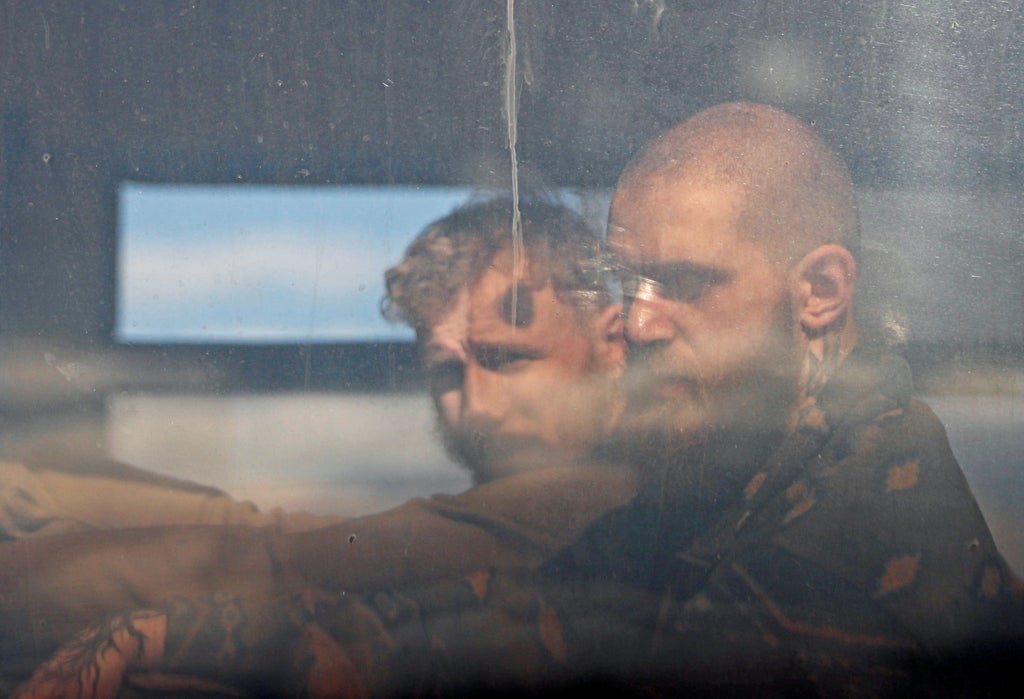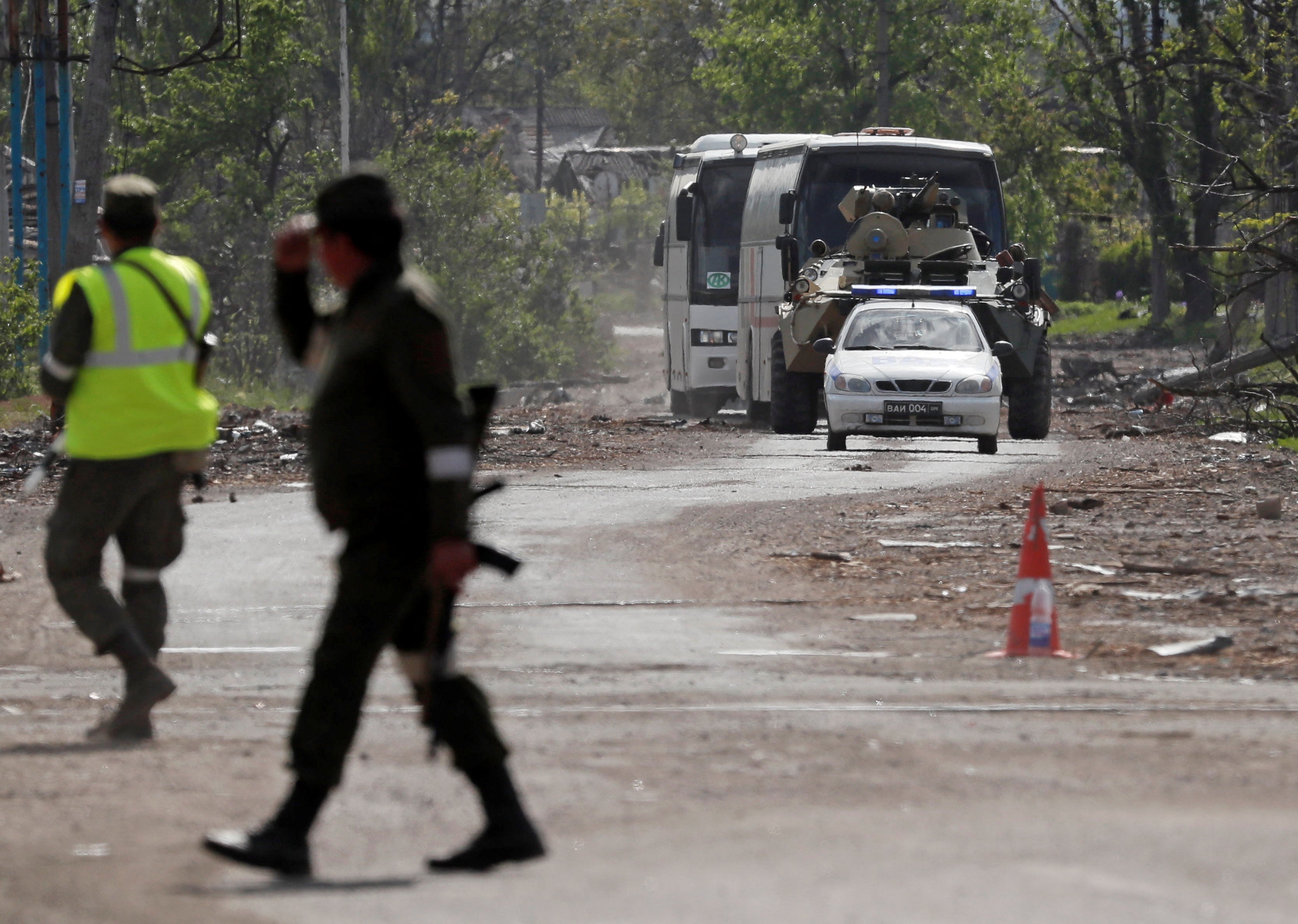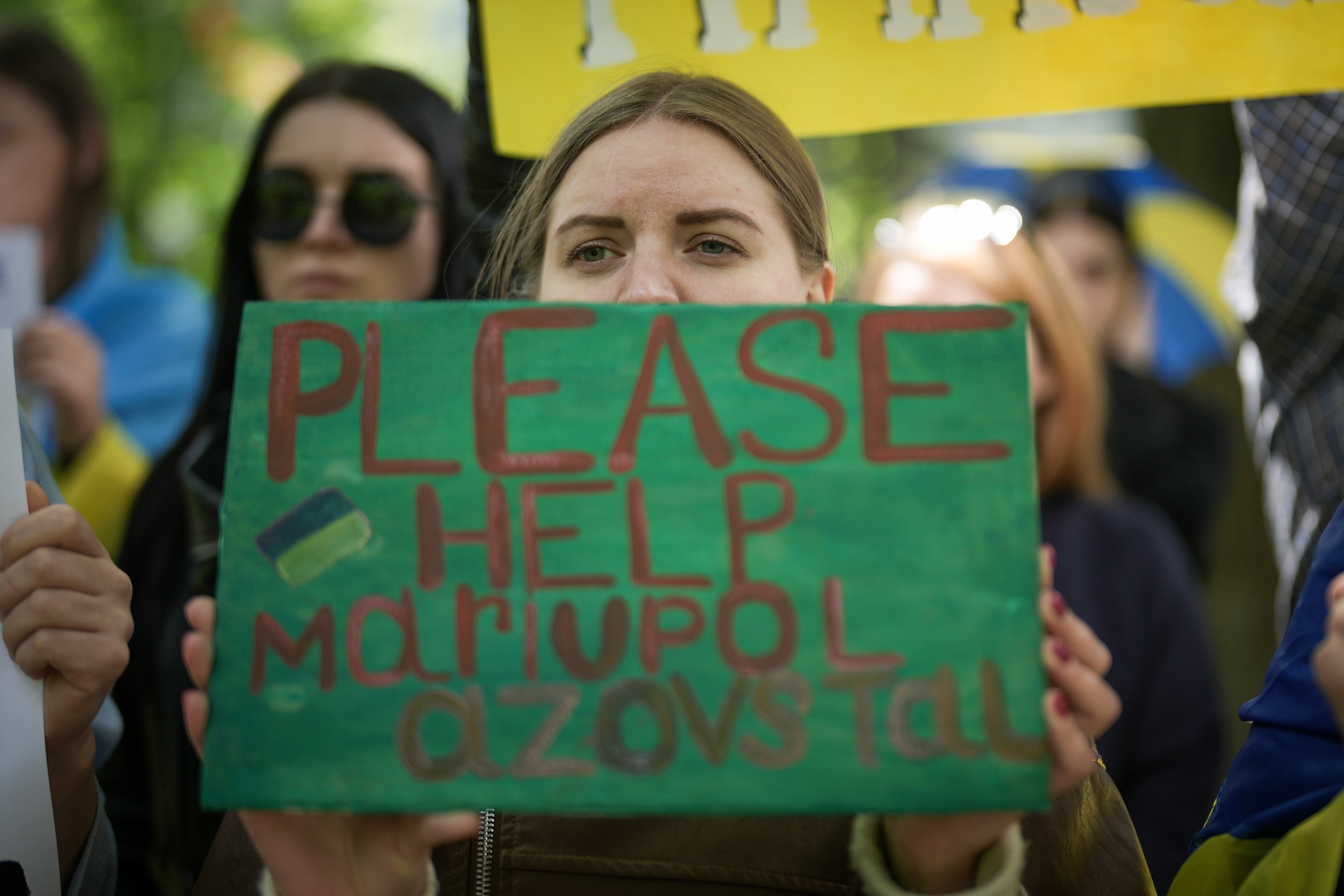
Mariupol was on the verge of falling completely into Russian control on Tuesday after hundreds of fighters were evacuated from a steel factory after surviving weeks of bombardment by Russia.
The capture of the city would make it the biggest to be taken by Moscow’s forces yet and give the Kremlin a badly needed victory, though it has largely been reduced to rubble.
There was immediate concern about the fate of the fighters captured by Russian forces.
Vyacheslav Volodin, speaker of the lower house of the Russian parliament, said there were “war criminals” among the plant defenders and they should be tried. And a Russian investigative committee will question those Ukrainian fighters who surrendered at the Azovstal steel plant, TASS news agency reported.
The questioning will be done as part of the investigation into what Moscow calls “criminal cases concerning Ukrainian regime crimes,” TASS added.
More than 260 fighters – some of them seriously wounded and taken out on stretchers – left the ruins of the plant and turned themselves over to the Russian side in a deal reached by the two warring parties.
Ukrainian authorities said they were working to extract the remaining soldiers from the steel mill, though how many were still there was unclear. Up to 600 people had been trapped in the steel plant for 82 days since Vladimir Putin launched the invasion of Ukraine on 24 February.
Russia called the operation a mass surrender.
Fifty-three injured troops have been taken to a hospital in the Russian-controlled town of Novoazovsk, some 20 miles to the east of Mariupol, Ukraine’s deputy defence minister Anna Malyar said.
Another 211 people have been taken to the town of Olenivka, in an area controlled by Russian-backed separatists, Ms Malyar said, adding that the evacuees will be subject to a potential prisoner exchange with Russia.
“Ukraine needs Ukrainian heroes to be alive. It’s our principle,” Ukrainian president Volodymyr Zelensky said in announcing that troops had begun leaving the mill.
However, a Russian official cast doubt on whether Moscow would hand all of them back to Ukraine in a prisoner-of-war exchange. The operation signalled the beginning of the end of a nearly three-month siege that turned Mariupol into a worldwide symbol of defiance and suffering.
The Russian bombardment killed more than 20,000 civilians, according to the Ukrainians, and left the remaining inhabitants – perhaps one-quarter of the city’s pre-war population of 430,000 – with little food, water, heating or medicine. Sites Russian forces attacked included a maternity hospital and a theatre where civilians had sought shelter.
Gaining full control of Mariupol would give Russia an unbroken land bridge to the Crimean Peninsula, which it seized from Ukraine in 2014, and deprive Ukraine of a vital port.

It could also free up Russian forces for fighting elsewhere in the Donbas, the eastern industrial heartland the Kremlin is determined to capture.
Earlier this week, fighters in the Azov battalion – a unit of the National Guard of Ukraine that has had neo-Nazis within its ranks – said their comrades inside the plant had been living in unsanitary conditions “with open wounds bandaged with non-sterile remnants of bandages, without the necessary medication and even food”. Images showed a number of troops with limbs missing.
“The conditions they are in are horrible,” Mariupol resident Alina Nesterenko said. “I have no words to describe them. That’s why we are here. We are begging, we are pleading in every possible way, we are asking for our loved ones to be saved.”

Natalia Zaritskaya, whose husband is an Azov Regiment member, described “hellish” conditions at the plant. “They are in hell. They receive new wounds every day. They are without legs or arms, exhausted, without medicines,” she said.
Earlier this month, a number of civilians were evacuated from inside the plant – one of the largest metallurgical facilities in Europe. Around 1,000 women, children and elderly people had been sheltering in the steel plant’s underground tunnels, according to the city council of Mariupol.







